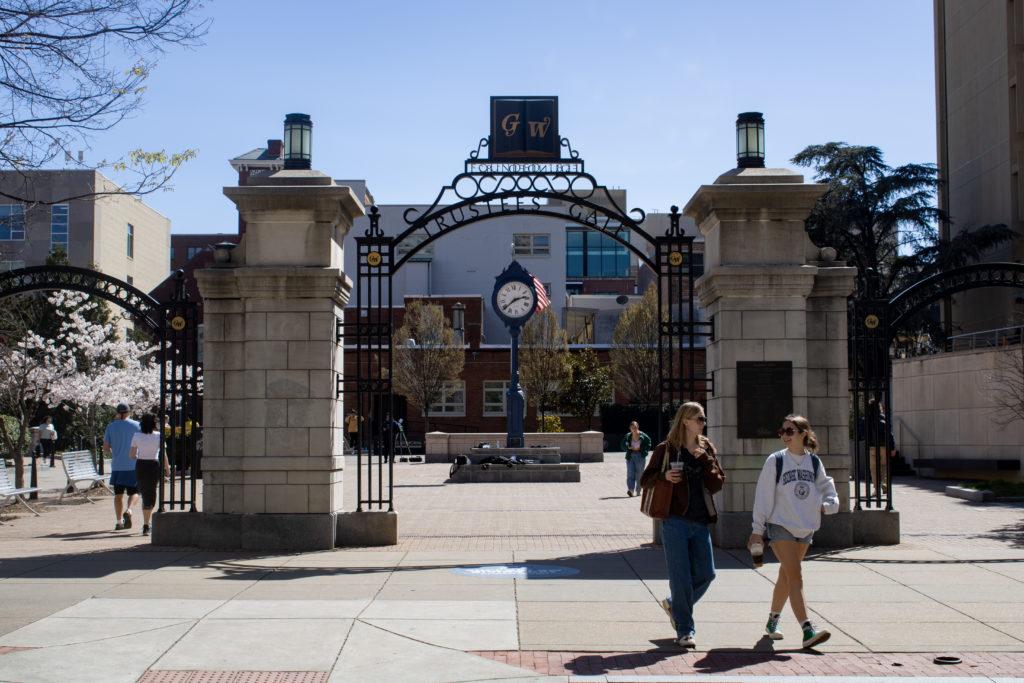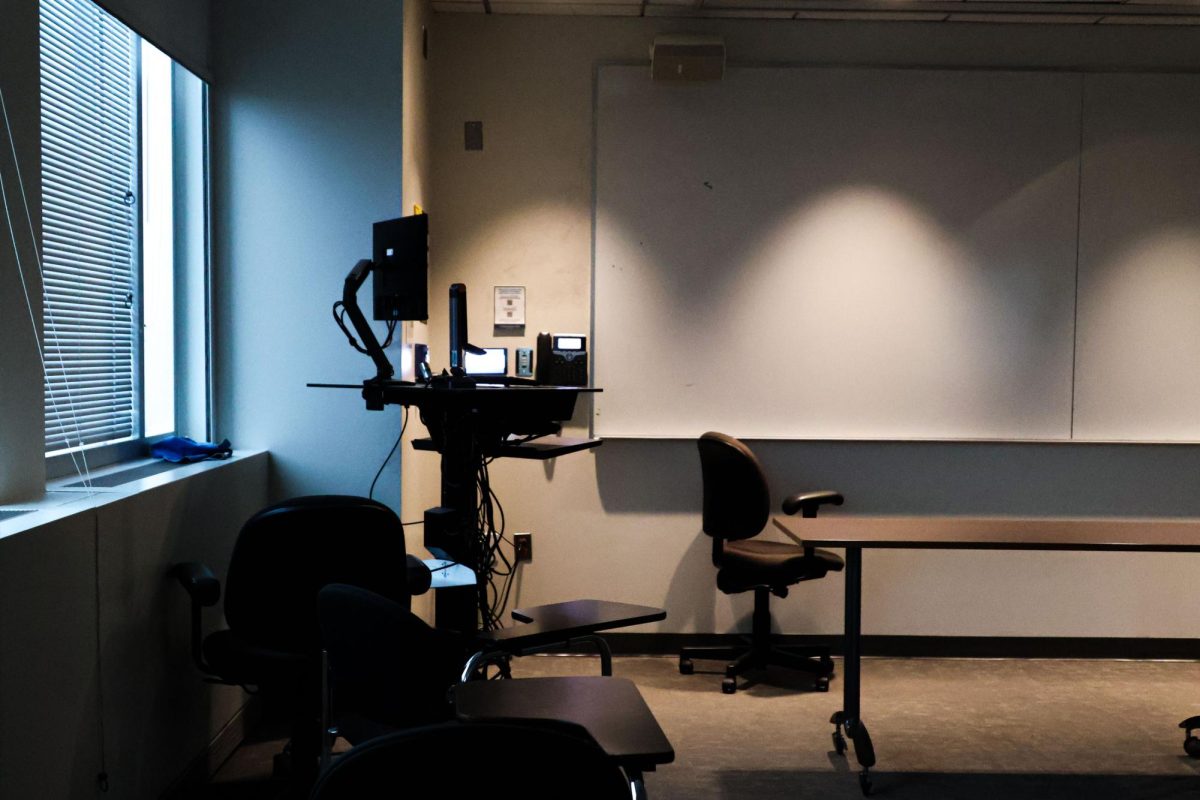A group of 10 staff members are organizing a University-wide staff governing body after administrators rejected multiple attempts to form the group over the past nine years.
Staff will elect 25 staff members who are not unionized nor deans, provosts or vice presidents by July 1 to the Staff Council, which will meet monthly to deliver feedback on GW policies and programming while discussing topics like diversity, equity and inclusion, staff recognition and their relationship with the administration. Staff made two unsuccessful attempts to form a University-wide staff governing body in 2014 and 2020, which they said was due to a lack of approval from the administrations of former University presidents Steven Knapp and Thomas LeBlanc.
Chris Dietrich, a member of the council’s Organizing Committee – a group of staff members that created the bylaws for the council – and the course scheduler for the Graduate School of Education and Human Development, said staff are the “third leg” of the GW community alongside student and faculty, whom the Student Association and the Faculty Senate already represent. She said the council will help them become “equal” with students and faculty and advocate for campus-wide issues that previously omitted staff input, like COVID regulations.
She said interim University President Mark Wrighton was the first GW president to support the idea of a staff governing body.
“I never stopped talking to people,” she said. “I continually listened to and gathered stories. The fact that the need for representation and our voice to be heard was constant, I heard it all the time, all day, every day.”
Dietrich said the 25 staff members will represent all of GW’s departments and 14 schools. The council will have an executive board that includes a president, vice president, parliamentarian, treasurer and historian. She said some larger staff units, like the athletics department, will have their own representative on the council, but smaller units will be grouped together under one council representative.
Dietrich said the council will have five committees on diversity, equity and inclusion, service, staff development and recognition, communications and staff experience. She said the elected council will decide if general body meetings and committee meetings will be open to the public.
Dietrich said the council will bring staff from across all of GW’s schools and departments who would not otherwise have the opportunity to meet and learn from each other and distribute the council’s listserv to advertise. She said staff from different schools and departments have common issues and can provide solutions to each other.
Officials formed a shared governance task force in 2022 to oversee a plan to strengthen trust between administrators and the rest of the GW community, consisting of trustees, executive-level staff and faculty. The task force did not include staff members ranked lower than administration level.
“We won’t all agree, but we need to, as a unit, recognize that we have a voice when we talk to each other,” Dietrich said.
Kim Fulmer, a member of the Organizing Committee and a research program manager, said staff members currently voice their opinions to officials through various committees and councils, like the School of Nursing Staff Council and the Benefits Advisory Committee, a group of staff who offer feedback on staff benefits like health care and retirement. She said the council will involve staff members of all levels in decisions that affect the entire University, like the selection of University presidents.
The Presidential Search Committee that selected incoming University President Ellen Granberg included five faculty, eight trustees, a trustee emerita, SA President Christian Zidouemba, Alumni Association Will Alexander and one staff member – Vice Provost for Diversity, Equity, and Community Engagement Caroline Laguerre-Brown. The committee did not include nonadministration staff members.
“We really wanted a lower-level staff member to be on that search committee, and by that, I mean a nonexecutive-level staff member,” Fulmer said.
She said the Organizing Committee created bylaws during previous attempts to form the council, which listed that staff representation makes the University “attractive” for potential employees and helps empower staff to support students.
Fulmer said she used to be a part of the Columbian College of Arts and Sciences staff resource group where staff could share tips about writing reports and Google Drive updates, which boosted “morale” and “efficiency” in their work.
“More of us work hybrid and remote now, and so we want to make sure that GW staff members feel that they’re always included in the community,” Fulmer said.
She said staff can sign up for the Organizing Committee’s listserv or email the committee to get involved with elections or learn more about the council.
Fulmer, a higher education administration doctoral student, said she distributed an essay she wrote on why GW needs a Staff Council to administration-level staff in 2018 to rally support for the council. She said she never gave up on forming the Staff Council despite the unsuccessful attempts in 2014 and 2020 because she had a “tireless” dedication to making the Staff Council a reality.
“We are a very mission-driven staff at a mission-driven University,” Fulmer said.
Bridget Schwartz, a member of the Organizing Committee and the director of student employment in the Center for Career Services, said the council will “potentially” form employee resource groups that advocate for policies, like initiatives that increase accessibility on campus.
She said the Organizing Committee looked to Georgetown and American universities’ staff councils to mimic their bylaws and positions when planning GW’s body.
Georgetown University established its staff council of 30 elected representatives and a seven-person Executive Committee in 2012. American University has a 27-member staff council that consists of three executive board members and 24 representatives that oversee constituencies like the Office of Graduate & Professional Studies.
“We spell out that one of the purposes of the staff council is to build an inclusive and safe, supportive community for staff, and I think that’s incredibly important,” Schwartz said.








